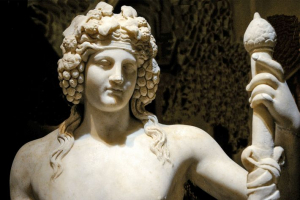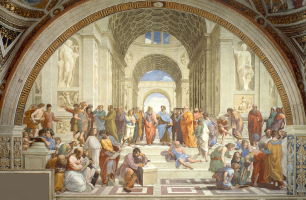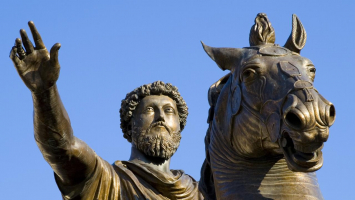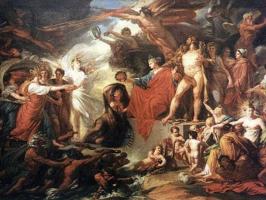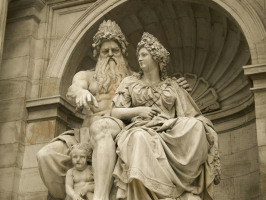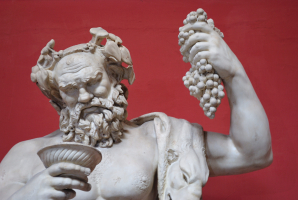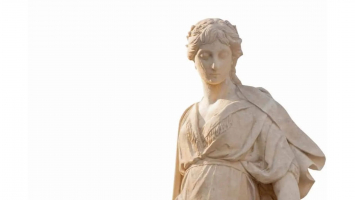Top 8 Ancient Greek Philosophers
The philosophers of antiquity were pioneers in their fields! The Greek terms Philo (which means love) and Sophia are whence the word philosopher is from ... read more...(wisdom) The intelligent thinkers observed and explained what they saw all around them for many hours. These great thinkers' ideas and teachings laid the groundwork for contemporary thought and western philosophy, and they are frequently cited in conversations about mathematics, physics, human nature, and the cosmos today. Here is a list of ancient greek philosophers, you should know.
-
Around 570 BCE, Pythagoras was born on the island of Samos, which is now part of Turkey. As a young man, it is said that he visited Egypt, Phoenicia, and Babylonia in quest of knowledge.
The majority of the information we have about Pythagoras comes from third-person sources, with the first reports of his life arriving roughly 150 years after his passing. Similar to this, many of his teachings-which he most likely never recorded-were passed down by his Pythagorean Brotherhood pupils and may have even evolved after his passing. Pythagoras developed a philosophical school that attracted a large following, even though he is more recognized for his theories and concepts in mathematics than for philosophy. Many well-known women were included in this; some contemporary researchers believe Pythagoras intended women and men to study philosophy together.
The Pythagorean Theorem, which connects the lengths of a right triangle's three sides to a mathematical equation, is a topic of study in high school mathematics.
His major discoveries include the functional relevance of numbers in the real world and music, as well as the incommensurability of the side and diagonal of a square, in addition to his namesake, the Pythagoras Theorem. In general, Pythagoras held that everything in the universe was in perfect harmony, and he taught his students to attain balance by knowing what to eat (he was a vegetarian), when to sleep, and how to interact with others.

Photo: Samuel Oktavianus - Pythagoras 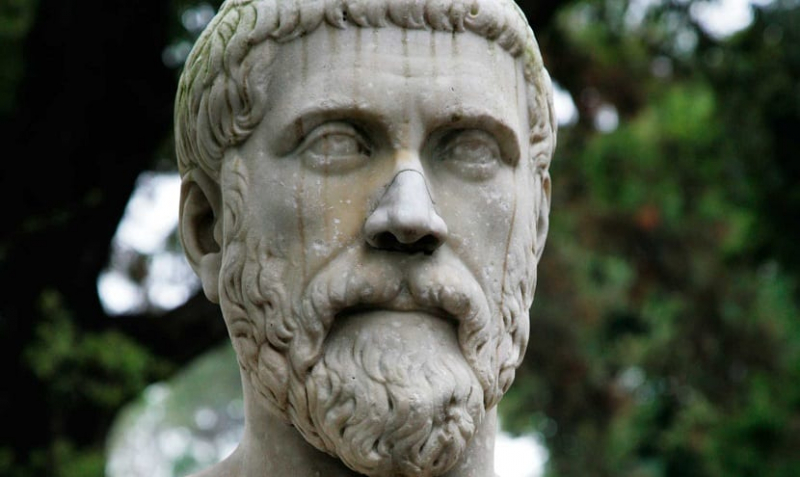
Photo: www.meteorologiaenred.com - Pythagoras -
Many modern historians classify other philosophers as either "pre-Socratic" or "post-Socratic" thinkers since Socrates' ideas were so influential. Socrates of Athens, considered as the "Father of Western Philosophy," is credited with developing the "Socratic Method," which held that a conversation between a student and a teacher was an essential component of learning.
By doing this, he publicly departed from the unending physical speculation that his contemporaries valued and argued in favor of a philosophy founded on human reason that was useful in everyday life. When he was placed on trial for "corrupting the young of Athens," this approach to practical instruction finally brought about his demise. He gave the renowned "Apology of Socrates" speech during his defense. It attacked Athenian democracy and is still regarded as a foundational work of Western ideas and culture.
Although Socrates was given the option to pick his sentence, he probably would have been permitted to choose exile instead than death. But he opted for death and famously took hemlock's poison. Since Socrates did not leave a written record of his philosophy, his fellow philosophers took notes of his speeches and dialogues after his passing. The dialogues that seek to define virtue are among the most well-known and show Socrates to be a man of remarkable intellect, honesty, and argumentation skill.
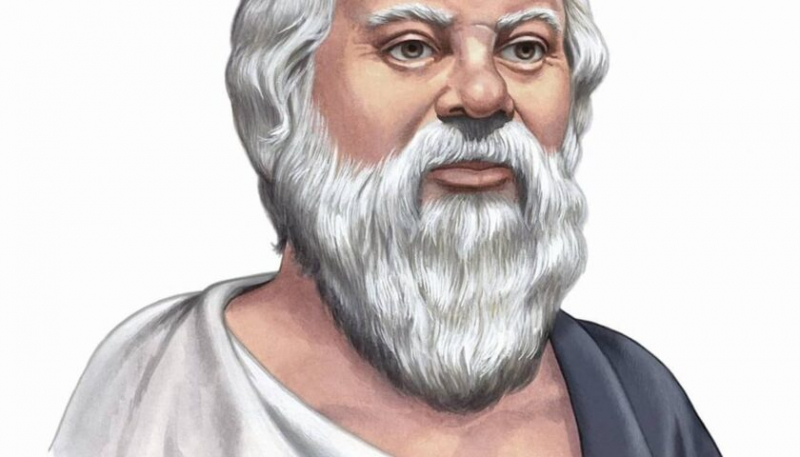
Photo: Cleanpng - Socrates 
Photo: The Imaginative Conservative - Socrates -
Thales of Miletus, one of the ancient Greek philosophers, astronomer, and renown mathematician, laid the groundwork for Western thinking.
One of the seven ancient sages was the Greek philosopher Thales of Miletus. He was regarded by Aristotle as the first philosopher and his forebear in the field. As the first philosopher in the Western tradition, Thales is now usually regarded as such. Thales was a brilliant individual who altered the ancient world through his work in geometry, mathematics, astronomy, and, of course, philosophy. Although some of his ideas, such as the notion that everything is made of water, seem out of place in the twenty-first century, Thales was an ingenious figure.
While avoiding mythology, he established a number of hypotheses utilizing observation, reasoning, and scientific understanding. He searched for reasons behind the natural occurrences that had previously been ascribed to the 12 Olympian gods. However, he did not deny the idea of gods and thought they were everywhere. Thales was principally curious on the process of world creation. He believed that water, alone, is the source of all of nature. The majority of those who came after him were influenced by him, making him one of the most significant pre-Socratic thinkers. The question of whether Thales of Miletus ever produced a book was generally disputed by ancient sources. In any event, the work of succeeding philosophers and academics allowed for the preservation of his major ideas.
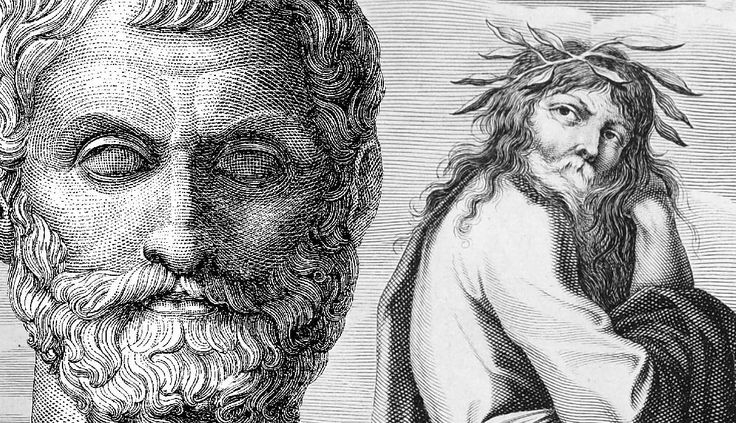
Photo: Pinterest - Thales Of Miletus: The Father Of Western Philosophy 
Photo: Behance - Thales Of Miletus -
Plato was a pupil of Socrates, and he merged ideas from his teacher's understanding of human reasoning into his own system of metaphysics, along with natural and ethical theology. He famously used the analogy of "Plato's Cave" to convey this mindset. This implied that seeing the shadows of flames on a cave wall was only human perception, not genuine knowledge (actually viewing and understanding the fire itself). He advocated looking for deeper significance and employing philosophical thought to properly comprehend the real world.
Plato established the Academy, the first higher education institution, as well as the Platonist school of philosophy. He is one of the very few Greek philosophers from antiquity whose written works have nearly all survived.
The Republic, one of Plato's most well-known writings, addresses justice and attempts to clarify what makes a fair individual and a good city-state. It takes into account the ideas of good and evil as they relate to the body and the soul. The Republic also presents a perfect/utopian society and contrasts four political systems: tyranny, democracy, oligarchy, and timocracy. Plato combined diverse facets of political philosophy, metaphysics, and ethics to produce a philosophy that was organized, significant, and practical. As a foundational work of philosophy, it is still often taught today.
By asserting that absolute, non-physical thoughts are more real than the actual world, Plato also made a philosophical contribution with his theory of Forms.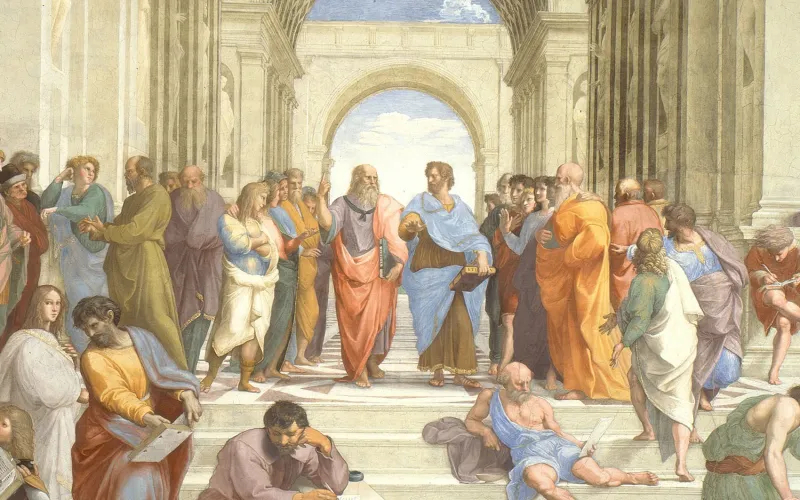
Photo: Timetoast - Plato: Founder of Platonist School of Thought and the Academy timeline 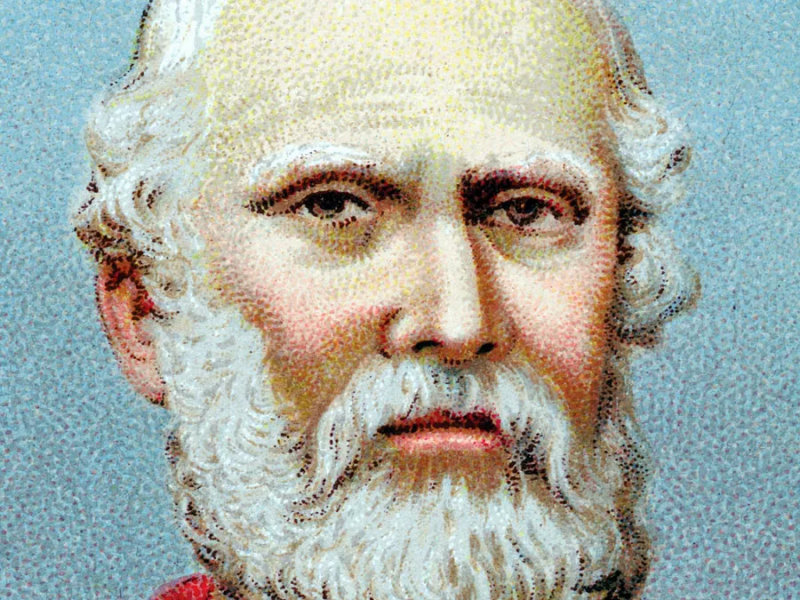
Photo: Encyclopedia Britannica - Plato -
Aristotle, who was born in Stagira, Northern Greece, traveled to Athens in his late teens and enrolled in Plato's Academy. Alexander the Great, the king of Macedon, had him as a tutor.
He and his instructor Plato laid the stage for more than two millennia of philosophical research, and a great deal of later work has either expanded upon or refuted his views. For more over two thousand years, his impact on philosophy has been unmatched, extending to areas like logic, metaphysics, science, ethics, and politics.
With the all-access pass to Ancient Athens' attractions, we may still visit the Lyceum, the school that Aristotle established. The Peripatetic School of Philosophy was also established by him. Aristotle, like Democritus, was a polymath. He had a wide range of interests, ranging from physics and biology to theater, music, and politics. Aristotle investigated and analyzed the many pre-existing philosophies and combined them into more sophisticated concepts. He made further distinctions between the four elements-hot, cold, wet, and dry-and argued that they are intrinsically linked to those attributes. Aristotle published a number of books on these topics. His writings served as an example for other philosophers and had a significant impact on western philosophy.
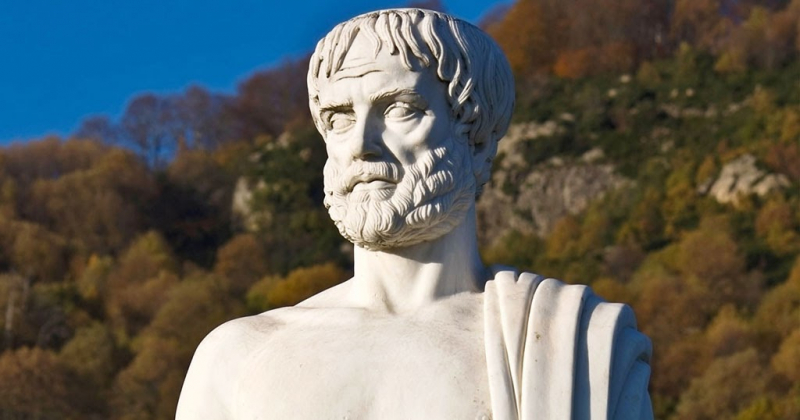
Photo: Banmaihong's Blog - WordPress.com - Aristotle 
Photo: Encyclopedia Britannica - Aristotle -
Greek philosopher Epicurus is known for developing the simple pleasure, friendship, and retirement ethics. He was a prolific author who produced 37 volumes, but sadly, just a few pieces and four letters have survived. Many others who came after him were influenced by his views, including Lucretius of Rome and his work On the Nature of Things as well as the utilitarians Jeremy Bentham and J.S. Mill. He established philosophical schools that persisted from the fourth century BC until the fourth century AD. In Athens, he established the Epicurean school. The primary goal of the Epicureans was happiness, which they believed could be attained by being free from worry and fear. In Epicurus' opinion, inquiry is useless if it doesn't lead to mental tranquility. According to his theory, the cosmos is made up of "atoms" and the "void."
At the juvenile age of 14, sources claim that he had lost faith in his professors. He shared Aristotle's empiricist philosophy and thought that all knowledge is derived from one's senses. His new way of thinking was essentially based on the notion of avoiding pain and pursuing pleasure. Epicureanism promotes a contented and peaceful lifestyle. His greatest attributes are freedom, ataraxia (peace of mind), and the lack of suffering and terror. Friendships and self-sufficiency are essential for a happy existence. In order to obtain ataraxia, according to Epicurus, we must pursue pleasure since it is ethically acceptable. In this sense, even suffering may be advantageous if it results in mental tranquility. His early teachings were anything but hedonism, despite the fact that his name and ideology have been misinterpreted and associated with it. Because of his early education, it is clear that Epicurus was greatly affected by the ideas of Plato, Aristotle, and—most significantly—Democritus. His teachings gradually attracted a number of devoted disciples, even winning over slaves and women.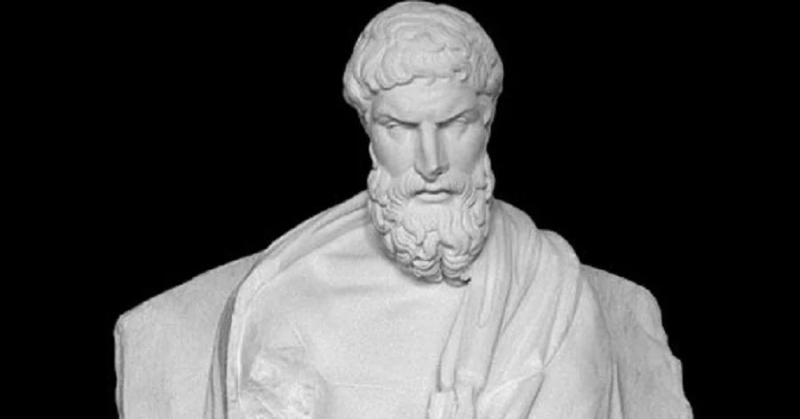
Photo: The Famous People - Epicurus 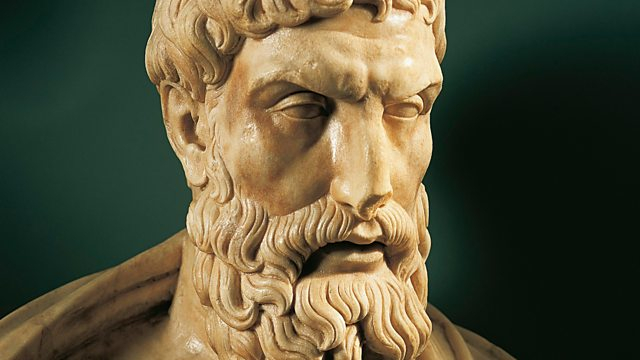
Photo: BBC -
One of the most extreme ancient greek philosophers was Diogenes, the founder of the Cynic school. Diogenes sought a life of virtue under the influence of Socrates. His approaches, meanwhile, were very unlike from those of other philosophers.
Diogenes thought that one may escape politics and social expectations by giving up worldly belongings and committed to an austere life of poverty. He promoted following one's instincts without regard to constrictive societal norms. "He has the most who is best pleased with the least," said Diogenes.The Cynics, who were frequently made fun of by other ancient Greek philosophers, took their name from the Greek term "kunikos," which means "dog-like." This was accurate in many respects. According to Diogenes, we should behave as though we were animals and let the cycles of nature rule our lives.
However, Diogenes was unconstrained by societal norms and expectations and was unconcerned with what other people thought of his ideas. Famously, Alexander the Great sought out Diogenes and inquired about any favors he might be able to offer. The Cynic just gave the young conqueror a cursory glance before asking him to cease obstructing his sunshine.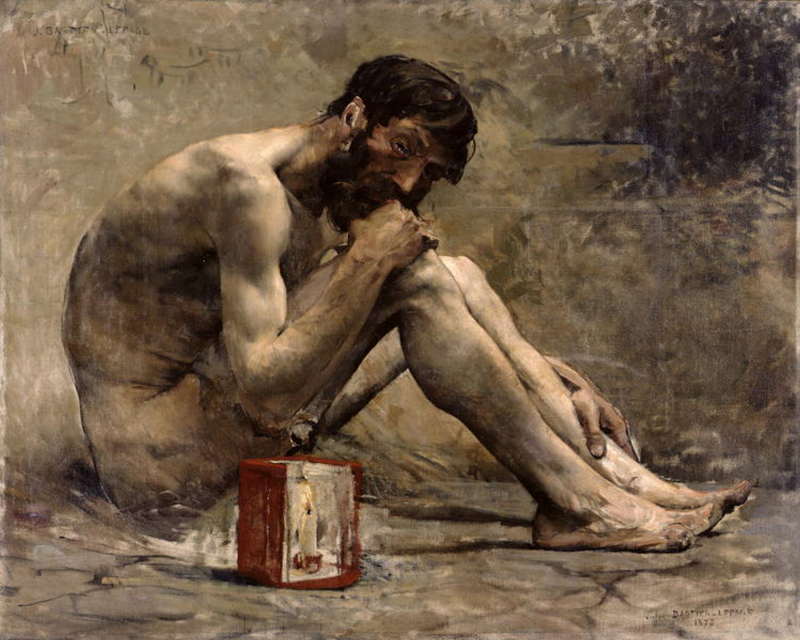
Photo: Quotes of Famous People - Diogenes of Sinope 
Photo: biblioluces - WordPress.com - Diogenes of Sinope -
Stoicism was one of the most well-known philosophical movements that the ancient Greek philosophers established. Zeno of Citium was the first person to establish this useful philosophy. Although Zeno was a student of Diogenes the Cynic, he disagreed with some of his mentor's more outlandish theories. He therefore went it alone.
The Stoic school of thought, which Zeno founded, was first taught in Athens in 300 BC. Stoicism placed a strong focus on the goodness and peace of mind attained through leading a life of virtue by nature. It was based on the moral principles of the Cynics.
Accepting what is beyond of your control is a core Stoic principle. Zeno thought that by accepting what was beyond our control, we could focus on what was within our control. He held a belief in a supernatural "Logos" or legislator who oversaw natural rules. Zeno contended that humans were endowed with free will.
Zeno thought that we may develop a "life by nature" by exercising our free will to accept what we cannot change. This refers to both acknowledging our innate human nature and living in harmony with the natural environment. We should accept both the positive and negative parts of life in both situations.Greek thinkers like Chrysippus contributed to the continued development of stoicism, but it was during the Roman era that it fully took off. Along with authors like Epictetus and Seneca, Marcus Aurelius, a renowned philosopher-emperor, studied Stoicism.
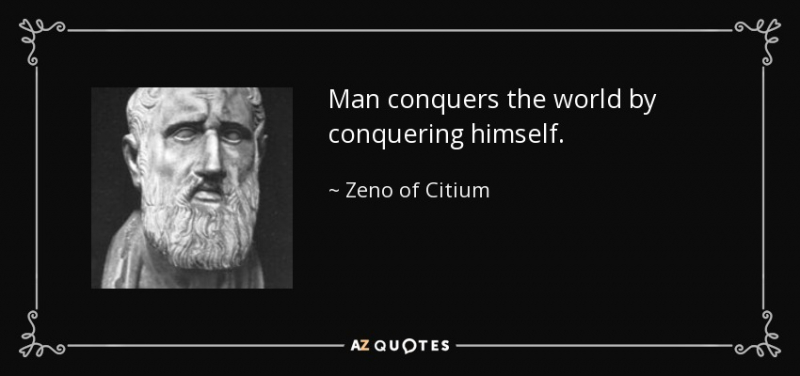
Photo: A-Z Quotes - Zeno of Citium quote 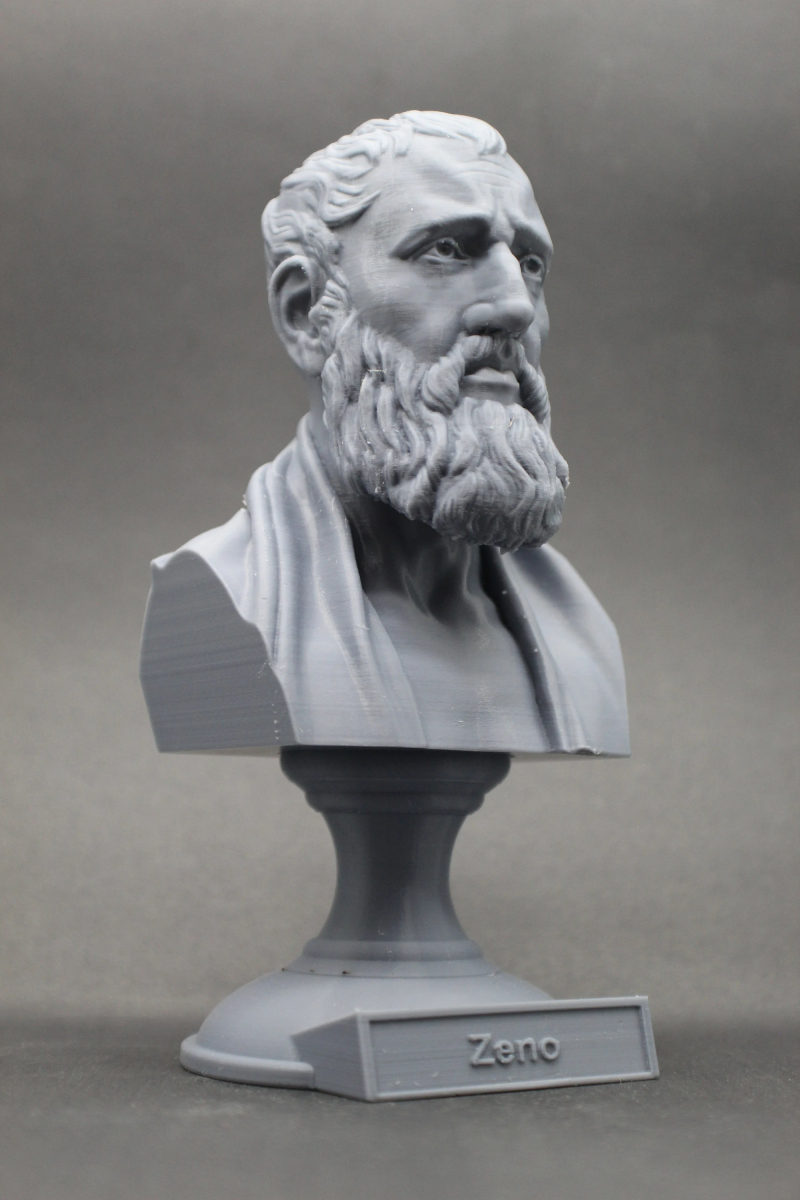
Photo: Etsy - Zeno of Citium










